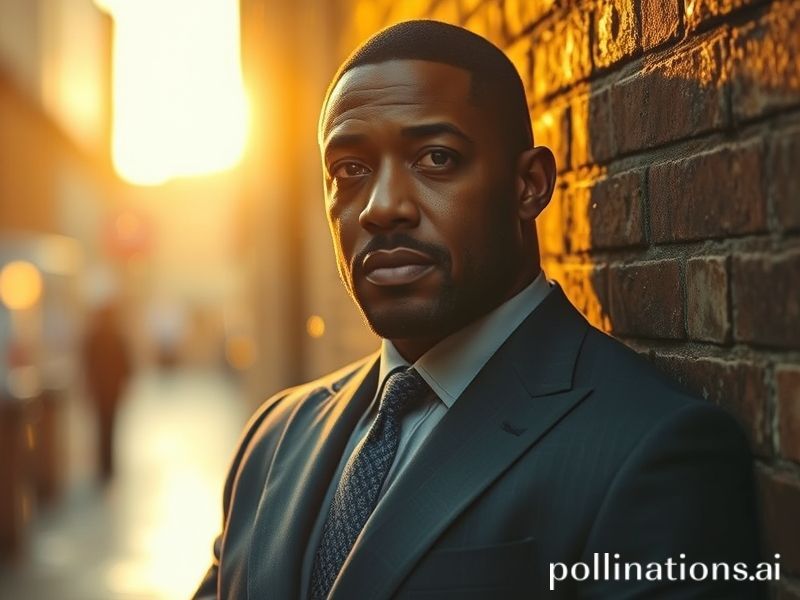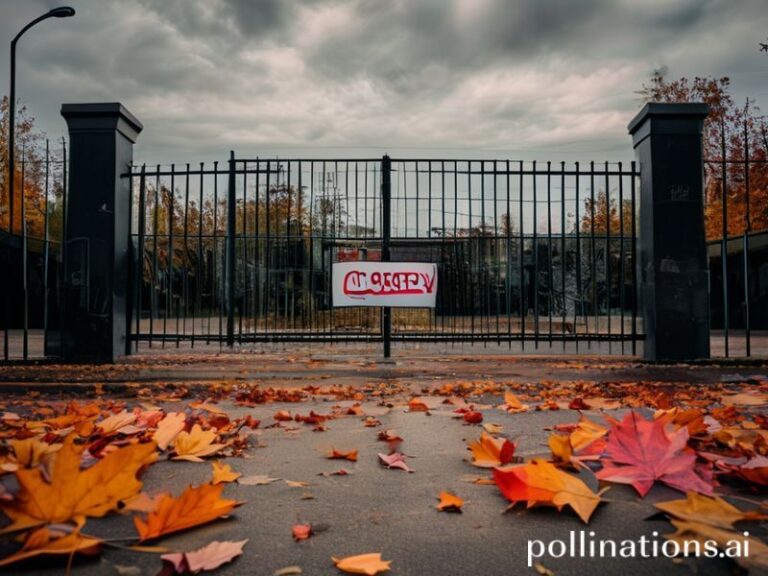Idris Elba: The Last Globalist Superhero Before the Wi-Fi Dies
Idris Elba and the Mirage of Post-National Stardom
Dave’s Locker – International Desk
Somewhere over the mid-Atlantic, between the deflated croissant of Brexit Britain and the algorithmic optimism of Los Angeles, Idris Elba is probably on a Wi-Fi call telling his agent he’d like to be the first Bond who moonlights as a DJ while simultaneously negotiating peace in the Horn of Africa. The world nods along because, in 2024, that is what we have agreed to call “plausible.”
Elba is no longer merely a Hackney-raised actor with cheekbones sharp enough to slice tariffs; he is a geopolitical Rorschach test. In Lagos, teenagers download his playlists to drown out generator hum. In Dubai, marketing executives pitch “Elba-grade gravitas” to sell cologne to men who have never sweated. In Brussels, EU bureaucrats briefly considered appointing him goodwill ambassador for something—anything—to feel cool again. The planet, starved for unifying mythologies, has decided one charismatic Londoner might suffice.
The cynic’s guide to global Elba-mania starts, of course, with passports. British media insist he is “one of ours,” a triumph of multicultural Britain—code for “please forget the Windrush paperwork fiasco.” American studios prefer to label him “international talent,” which means he can open a film in Guangzhou without subtitles. Meanwhile, Ghana gave him citizenship in 2019, a transaction so smooth it made diasporic influencers on TikTok weep into their kente-filtered ring lights. Sierra Leone followed suit, because nothing says economic recovery like a famous son who once played a warlord on Netflix.
His career trajectory reads like a satire sketched by a sleep-deprived IMF intern. Start in Baltimore drug dens (The Wire), end up advising the UN on food security. Somewhere in between, he fights giant sea monsters (Pacific Rim) and teaches Marvel’s Norse pantheon about diversity (Thor). Each role is repackaged abroad as proof that globalization works—never mind that the same supply chain can’t deliver baby formula to rural Honduras.
Then there’s the Bond question, that annual ritual where Fleet Street sacrifices column inches at the altar of progress. Will he or won’t he? The debate conveniently ignores that MI6 now recruits via Instagram ads and that actual espionage is mostly Excel spreadsheets. Still, the prospect of a Black 007 triggers think-pieces from Singapore to São Paulo, each deploying Elba as a metaphor for whatever the local culture war lacks. In short, he is a blank tuxedo onto which we project our hopes that someone, somewhere, still looks dapper while the world burns.
Off-screen, Elba’s hustle is pure late-capitalist poetry. He deejays in Ibiza under the name “DJ Big Driis,” a moniker that sounds like a hedge fund specializing in rainfall futures. He co-founded a skincare line marketed to men too anxious to admit they use moisturizer. He recently launched a fintech startup promising to “democratize remittances,” a phrase that translates to “let’s skim a smaller vig from your aunt in Peckham sending cash to Freetown.” Even his side hustles have side hustles; somewhere, a consultant is invoicing for a SWOT analysis on his sneaker collaboration with a Japanese cult label.
And yet, the joke’s on us: the more borderless Elba becomes, the more we crave the fantasy that borders still matter. Every stamp on his diplomatic passport reassures anxious nation-states that culture can still be hoarded, branded, and tax-incentivized. Meanwhile, the man himself keeps moving—filming in Melbourne, spinning vinyl in Accra, Zooming into a Davos panel on creative economies—embodying the precise fluidity that terrifies the populists back home.
When the inevitable biopic drops, expect competing cinematic universes. Britain will demand a gritty council-estate origin story. America will green-light a franchise where he time-travels to broker peace deals. Nollywood will produce a three-part epic featuring miraculous bullet-dodging and at least one river goddess. Streaming algorithms will splice them into personalized montages: your Elba, algorithmically curated to soothe your particular geopolitical anxiety.
In the end, Idris Elba is not saving the world; he is simply the most photogenic symptom of its collapse into one endless awards ceremony. We hand him trophies because it’s easier than fixing the plumbing. And he, gracious professional that he is, keeps smiling—those immaculate teeth reflecting our own hunger for a story bigger than the latest inflation report. Somewhere on the tarmac at Heathrow, the next flight boards. He adjusts his headphones, queues another track, and disappears into the recycled air of another departure lounge. The planet exhales, momentarily convinced the connection flight to utopia is merely delayed, not canceled.







